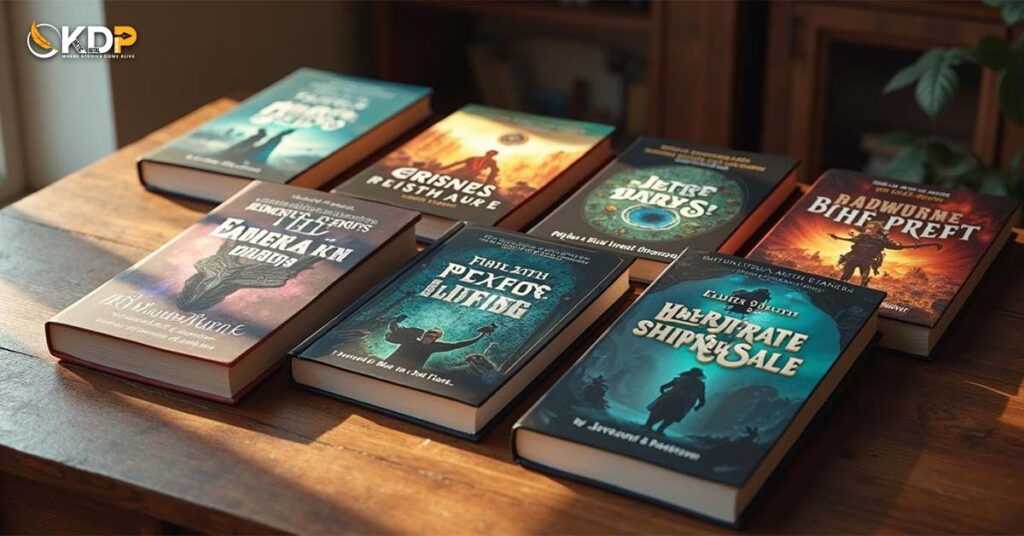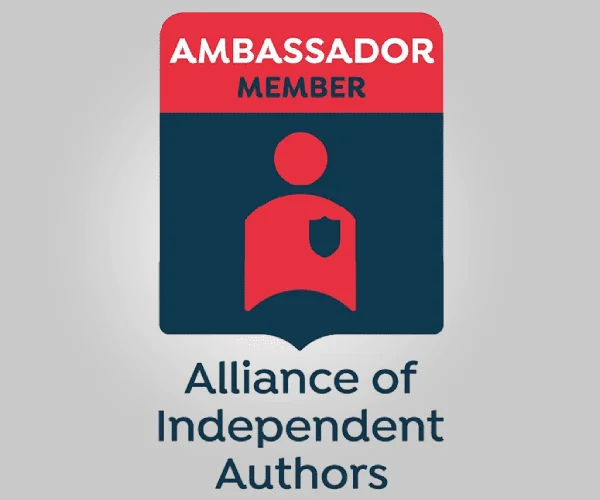Choosing the Best Audiobook Narrators for Your Story
Audiobooks have revolutionized the way we approach literature. The narrative voice can be just as powerful as the printed word in our fast-paced world. Audio books best narrators can turn an intro text into a lively universe. It can be full of character and emotion.
Picking the right audiobook narrator is key. You want someone who truly brings your story to life. Their voice should connect with your audience. To do this well, you need industry insight, some technical know-how, and a creative approach.
It also helps to know who listens to audiobooks the most. Here are 10 tips for picking the right voice and finding a reliable storyteller.
Top 10 Tips For Selecting The Audio Books Best Narrators
The path to identifying the best audiobook narrators is both artistic and scientific. It involves closely reading the story’s core. Analyze the voice recording. Understand the emotions that keep listeners engaged. The following tips ensure your audiobook distinguishes itself in a crowded market.
Know Your Story’s Heartbeat
You need to know your story’s true focus before finding narrators. You want to arouse what feelings? Which tone and tempo best define the story? Every scene, chat, and detail in your book has a hidden pulse that ties them together.
Understanding Genre and Mood:
First things first, think through your book’s genre. Exciting mysteries need a narrator with a smooth, steady style to build suspense. A historical epic needs a strong, expressive tone. A romance should feel warm and close. Knowing the emotions in your story helps you find narrators who fit those feelings.
Matching Voice and Character:
Your characters come to life through their voices, not their words. Audio books best narrators should switch between different tones, accents, and emotions. If your story has many characters from other places, choose a narrator who can handle that.
Personal Reflection and Vision:
Build a clear vision for how your book should sound. Picture a powerful performance that stays true to your words. This will sharpen your instincts during auditions. This step matters. Technical skills matter, but your bond with the narrator can influence the outcome. Trust your instincts. Pair them with research. This way, you’ll be able to make an audiobook that grabs everyone’s attention.
Rank, Clarity, and Articulation
Effective audiobook narration is based primarily on flawless articulation and clear enunciation. Pay attention first to the clarity of the audiobook narrator when choosing one.
The Importance of Enunciation:
The story should sweep listeners away and not let poor diction or accent stop it. A clear narrator makes sure every word and subtle detail hits exactly as you meant it—nothing gets lost. For nonfiction, technical topics, or complex storylines, accuracy is especially crucial.
Techniques That Enhance Articulation:
Great storytellers use pauses, pacing, and breath control to enhance comprehension. Their training helps them change their tone to fit the sentence. They can also highlight key points and clarify complex ideas, even in audio. Also, see if they can keep a rhythm that fits the story, from fast action to calm moments. These skills are especially important when answering, “What is the most reliable narrator? One who constantly delivers with verbal accuracy.”
Listening to samples:
As you assess potential narrators, request extended samples. It’s not just about hearing a nice voice. It checks if they can have quick chats, spell hard words, and use multi-syllabic terms. For long audiobooks, check if detailed samples remain clear during extended listening.
Research Their Range
The voice range of the best audiobook narrators is really exceptional. Audio books best narrators can smoothly switch between characters and moods. This skill is one of their most important features.
Diversity of Voice:
A novel really is an amalgamation of personalities, each with a unique voice. Some storytellers can easily change their pitch, tone, and accent. This helps them switch between characters smoothly. This adaptability is definite evidence of talent and expertise.
Adapting to genre-specific demands:
Every genre carries its own set of expectations. An expressive tone can engage young readers in children’s novels. But for thrillers, a quiet, thoughtful style builds suspense. When seeking talent, gather several samples. Consider narrators who display a wide range in past projects. These skills lead to engaging listening. They also help in finding a good audiobook narrator for different genres.
Real-World Examples:
Many acclaimed narrators have built careers by skillfully performing various roles. Consider storytellers like Jim Dale and Scott Brick. Their wide range of work shows that voice flexibility really enhances a story. These cases encourage writers to find Audio books best narrators. They want narrators who can offer engaging and vivid character portrayals. And this is for each audiobook project.
Check Story Engagement Skills
In any story, especially audiobooks, the listener’s imagination shapes the experience. Engagement is what keeps media alive. A narrator’s skill in engaging listeners is crucial. It helps us understand who enjoys audiobooks the most. It is the emotionally changed listeners who remain fixated on every word.
Emotional Resonance:
Every scene should have a narrator competent to capture its fundamental feelings. They must vary their tones for times of tension, grief, happiness, and surprise. This emotional awareness turns an audiobook from a reading into a vivid performance. Consider storytellers who hone their skills. Their smooth shifts between comedy and seriousness enhance the story. This makes each chapter a delight to hear.
Techniques for Engagement:
Good narrators raise tension and drama. They do this by using pauses, changing pitch, and adding inflections at the right moments. It usually takes extensive training and years of experience to master these methods. Hearing narrators at live events or in popular audiobook samples shows something. It shows how well they guide their audience into the story world.
Building a Connection:
Those who successfully create a personal connection via their performance often like narrators. An interesting voice does more than just pronounce words well. It brings warmth, authenticity, and a friendly tone that connects with you personally. Find audiobooks with great narrators. Check how well their performance connects with listeners and builds trust. The key to your project’s success may be how well they keep listeners engaged.
Consider Technical Skills
An audiobook’s success depends on technical skills, but great narration is most important. If bad sound quality taints even a gifted voice, its impact will fade. Hiring a skilled narrator is key in today’s competitive market.
State-of-the-Art Recording Setup:
Industry standards should guide a narrator’s home studio or professional recording environment. Good microphones, soundproofing, and advanced editing tools help create clear and smooth audio. Inquire about possible narrators for in-depth descriptions or insights into their recording spaces. This openness reflects professionalism and dedication to exact technical standards.
Editing and Post-Production Expertise:
Audio books best narrators role is more than just reading the book. They ensure the final product is professionally edited. In this setting, the narrator’s technical skills shine along with their storytelling style. Choosing a narrator who excels in voice and production quality is key. Understanding these technical details can really make a difference.
Importance for the Listener:
Think about the end-user experience. Bad audio quality can ruin even the best stories. Listeners should focus on the quality of audiobooks. They deserve products made to high standards. Technical mastery is both a bonus and a must-have. It helps your audiobook stand out as one of the best on the market.
Test for Consistency
A great narrator is reliable. This is key, especially for longer projects. They must be consistent in performance, tone, and enthusiasm. Which narrator is most reliable? It’s one who maintains their reading quality and timing throughout the story.
Audition Techniques:
Consider starting a thorough audition process before hiring. Ask potential narrators to record several pages. This way, you can see how they perform over a longer time.
Monitoring Variability:
Concentrate on the subtle changes in tone that may emerge during extended sessions. Audio books best narrators keep the character’s voice and the story’s mood intact. Inconsistent delivery may reduce the experience and disrupt the listener’s absorption. The approach should have quality control, feedback loops, and regular review sessions. This helps to find potential problems early.
Real-Case Scenarios:
Think of successful audiobook ventures in which narrators record in chunks. Teams often use directors or audio engineers. They track and guide the narrative to ensure it stays consistent. This professional approach helps you an important thing. It is to see if a prospect is the right audiobook narrator for you. Their endurance over extended sessions finally reveals their dedication to quality.
Seek feedback and reviews
Comments from past projects and listeners provide a wealth of information. If you’re a producer or an author, you need a storyteller. This person should have already made a strong impact on many listeners. Simply buying a narration service isn’t enough. Websites like Audible and Penguin Books got some great stuff. It is because they show what past listeners thought of the narrator.
Researching Past Work:
First, explore reviews and testimonies. Check for repeated themes in the comments. Does the narrator show distinct character differences throughout the story? Are there comments about their capacity for emotional and energetic projection? User-generated content often reveals strengths and weaknesses that short audition clips might overlook.
Peer and Industry Recommendations:
Industry colleagues and other writers can often provide recommendations outside of internet reviews. Personal experiences from reliable sources offer still another degree of dependability. Join voice acting groups and audiobook forums. Experts there talk about great narrators.
Constructive Criticism:
Remember, too, that no narrator is ideal for every production. Review comments within the framework of your needs. Some narrators excel at showing dramatic events. Yet, they may struggle with fast-paced speech. Alignment with the specific needs of your project is crucial. Review and endorsement insights are valuable for finding the right audiobook narrator. They help you match your vision for the story.
Align Values and Vision
Every great collaboration starts with a shared vision. Select a narrator whose values and personal style align with your narrative. The story becomes better when the author, narrator, and plotline work well together.
Cultural and Creative Alignment:
Think about the conceptual basis of your story. Your narrator might discuss science fiction, history, or culture. Their enthusiasm and expertise will keep the presentation lively. Carefully discussing your project’s idea can help determine if the narrator’s style aligns with yours. This combination often hooks the audience to the audiobook.
Building a Collaborative Partnership:
One could find great benefits from a narrator who is open to teamwork. Find people who want to join feedback sessions. Discuss your creative direction with them. Encourage them to adjust their delivery based on your comments. A pro who cares about your project will connect emotionally to the story. This teamwork guarantees that the finished work truly reflects your enthusiasm and originality.
Personal Outreach:
Conduct one-on-one meetings or have casual conversations with suitable narrators whenever possible. This connection can help you pick the best narrator for your audiobook.
Budget Considerations
A crucial yet essential component of the audiobook creation process is budgeting. Great narration is worth the cost. While top talent may be pricier, it often leads to a more engaging and marketable final product.
Determining the value:
Map your budget before starting auditions. Think about the usual voice range in your genre. Then, compare it to what an experienced narrator offers. Spending a bit more for quality can ensure every listener has a great experience. A good or great performance can affect how listeners rate it and impact sales in different ways.
Comparative Analysis:
Check potential narrators’ fees. Also, find out if they include editing, prep, and revisions. Looking at different options helps you find what suits your budget. You can do this without giving up on quality. Audio books best narrators who share their prices show they are reliable. This trust is key in choosing the best narrator.
Return on Investment:
A great narrator will really improve your audiobook so that it stands out in a crowded market. A good audiobook boosts your brand as a publisher or author. It also helps keep listeners engaged. This expenditure pays off several times in favorable reviews and expanded audience reach.
Check for Industry Experience
In the realm of audiobooks, experience counts quite a bit. An expert narrator brings technical skill and a strong voice. They also understand how to navigate the nuances of storytelling through audio.
Portfolio and Track Record:
Review the narrator’s portfolio very closely. Search for a variety of projects that either reflect the style or thematic content of your book. Often, industry experts have a solid work portfolio. This shows their reliability and flexibility. In complex stories needing a skilled touch, this experience can really help. As the narrator gains experience, they notice pace and emotion more. They also see how the audience connects.
Specialized Expertise:
Some storytellers focus on particular genres—be they self-help, fantasy, romance, or thrillers. A specialist knows your genre’s standards well. They can also capture its character effectively. This is particularly crucial, considering the search for a good audiobook narrator. Not afraid to select someone with experience in your particular field of interest.
Adaptability and Learning:
Check for signs of audiobook narrating training, conference attendance, or awards they’ve earned. These meetings make sure your story is in good hands. They also help the storyteller become a reliable and creative master.
The Final Say
Choosing the right narrator for your audiobook is a complex task. It blends technical skill with the art of a great performance. You set the stage for a result that truly connects with listeners. Spend time understanding your story’s heartbeat. Focus on clarity, build suspense, and check technical quality. Here are 10 tips to help you during key moments. They cover money issues and industry trends.
A good narrator can change a written story into an exciting listening experience. They can grab the audience’s attention and help solve any lingering questions. Choose the right audiobook narrator to make the most of it. Your focus on quality will help your story find the right voice with top audiobook narrators. These rules will help you confidently explore the wide world of stories. Audiobook narration goes beyond simply recording a book. It creates an immersive journey that touches the heart of every listener.




























